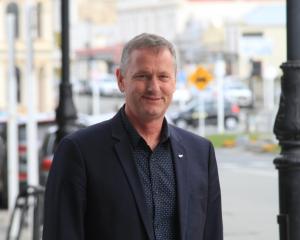Construction of a power scheme on the lower Waitaki River could inject up to $350 million into the local economy over the seven years it would take to build it.
Yesterday, the costs and benefits of the scheme proposed by Meridian Energy Ltd were outlined to the Environment Court by economist Brent Layton during a hearing into an appeal by the Lower Waitaki River Management Society against granting water consents for the project.
In addition to the benefits from construction, the project would add $4.5 million a year to the local economy once it was operating, Dr Layton estimated.
The north bank tunnel concept scheme could cost Meridian Energy Ltd between $864 million and $993 million to build.
Meridian estimated about 44% of the total cost would be spent on equipment imported from overseas.
About 45% would be spent on equipment and labour in New Zealand and around 11% near the Waitaki Valley.
Almost $110 million of the total construction cost would be spent locally.
Adding up the benefits to the local economy, Dr Layton estimated the impact would be between $304.3 million and $349.8 million.
The electricity generated would be worth between $84 million and $107 million a year.
Once completed, the scheme would cost about $5 million a year to operate and maintain. About half of this would be spent in the Waitaki Valley, with a consequent flow-on benefit to the local economy of $4.5 million a year.
Dr Layton did not accept adding another power station to the Waitaki generation system would increase risks in dry years. The new scheme would increase the output from the existing system, he said.
Having more electricity in one place did not make supply more vulnerable, he said.
Economist Geoffrey Kerr estimated recreation, including fishing, on the stretch of the river between the dam and Stonewall was worth $5 million a year. That did not include any value placed on the time spent on the river.
That cost was "very small" in comparison to the scheme's values.
Dr Kerr also said the effects of the scheme on recreational value were likely to be minor or adequately mitigated, so it was unlikely to have any significant effect on the value of recreation.
Meridian's infrastructure development manager, Nick Eldred, outlined the background to the scheme, its design, the water needed, how it would operate with the existing Waitaki power station and consultation with the community.
A survey of 700 people in the Waimate and Waitaki areas was carried out in June 2007, with 53% of respondents supporting the project with no knowledge of mitigation proposals.
Overall support rose to 62% when respondents were informed of mitigation measures and community packages.
The three top reasons for supporting the project were minimal environmental harm, the need for more energy and local benefits.
The three main reasons for opposing it were negative environmental impacts, effects on the community and limiting the use of the river.
There was also strong support for wind and hydro generation, with 79% favouring wind and 68% hydro. Geothermal was the next highest at 46%.
• North Bank Tunnel Hearings: Day 2
The Meridian Energy Ltd north bank tunnel concept power scheme costing up to $993 million is to take up to 260cumecs of water from Lake Waitaki into a 34km-long tunnel between the Waitaki dam and Stonewall with one powerhouse generating between 1100GWh and 1400GWh a year.
Environment Canterbury granted four water-only resource consents in December for the power scheme.
Five appeals were filed with the Environment Court by the Waitaki Protection Trust, Waitaki River Management Society, Ngai Tahu, Ngati-Mamoe Fishers People and Black Point farmer Garth Dovey.
Ngai Tahu and its runanga, Mr Dovey and Ngai Tahu-Mamoe Fishers People have withdrawn appeals. Waitaki Protection Trust now not opposing scheme.
Interested parties: Central South Island Fish and Game Council, Waitaki First, Lower Waitaki Irrigation Company, North Otago Irrigation Company, Maerewhenua District Water Resources Company, Kokoamo Farm Ltd, K and D Farms Ltd, Wainui Station, Dugald MacTavish.
Environment Court hearing: June 22 to July 3, Oamaru; July 6 to 10, Christchurch.
Hearing before: Judge Jon Jackson, commissioners Dr Alex Sutherland and Helen Beaumont and deputy commissioner Ken Fletcher.
Evidence yesterday: Benefits and impacts of scheme; efficient use of natural and physical resources; the electricity industry and future demand including the contribution of the new scheme; and the value of the water for electricity, agricultural, domestic, fishing, recreation and tourism uses.












